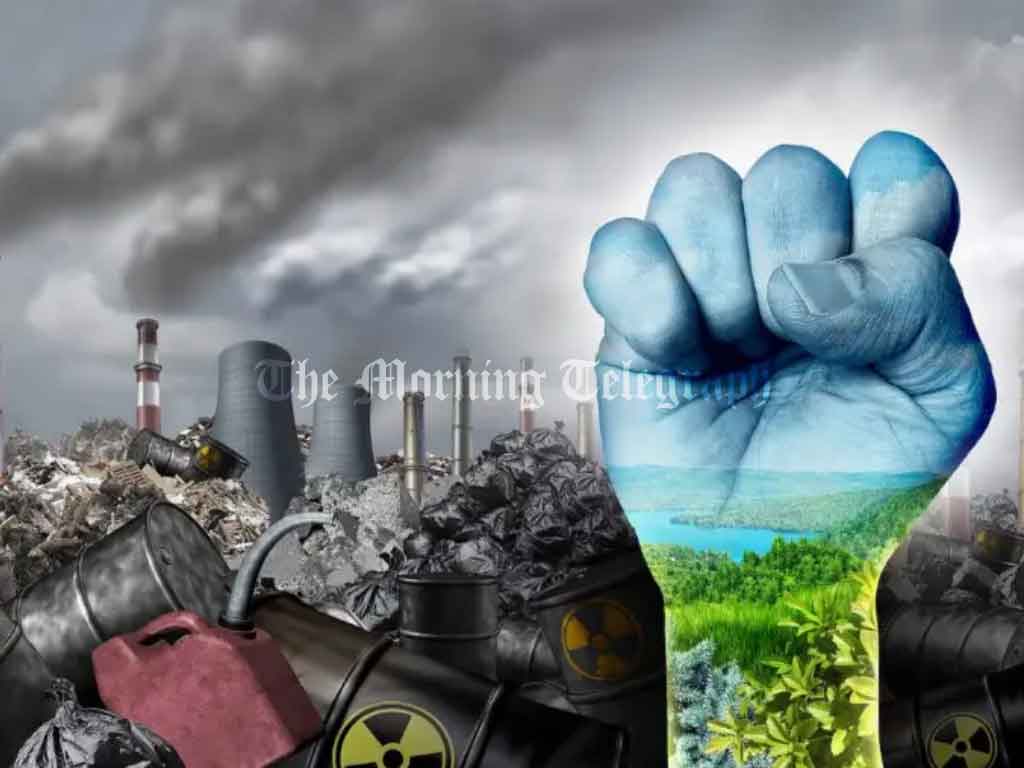
In August 2022, Pakistan endured catastrophic flooding after unprecedented monsoon rains submerged vast swaths of the country, killing over 1,500 people and causing economic damage exceeding $30 billion (£27 billion). A scientific study soon concluded that climate change had likely intensified the rainfall, pointing to a direct link between global warming and extreme weather events. This devastating flood was not an isolated incident—similar disasters, from cyclones in Madagascar to droughts in Somalia, are becoming more frequent and intense, largely due to human-driven climate change. As these disasters continue to unfold, vulnerable nations face not only tragic human losses but severe economic impacts, pushing them further into debt and leaving them with little room to invest in critical sectors like healthcare, education, and infrastructure.
The economic cost of these climate-induced disasters is staggering. According to projections, by 2030, the world’s most climate-vulnerable nations could face annual losses of $290-580 billion (£260-520 billion) in “residual damages,” or damages that cannot be mitigated by adaptation measures. By 2050, this figure could rise to $1-1.8 trillion (£890 billion-£1.6 trillion) per year. This growing financial burden highlights the urgency of finding solutions to climate-related losses and damages—a topic that is expected to be high on the agenda at the 2024 UN Climate Conference (COP29).
The ethical question at the heart of this crisis is one of responsibility: Should the nations and corporations most responsible for climate change pay for the damage they have caused? UN Secretary-General Antonio Guterres has become increasingly vocal on this issue, calling the climate crisis “a case study in moral and economic injustice.” He argues that the world’s most polluting countries and companies must pay for the harm they have caused, especially to nations that have contributed little to the crisis but are bearing the heaviest burdens.
The Cost of Climate Injustice
The call for polluters to pay is grounded in a growing body of research that quantifies the financial impact of climate change. A 2023 study by Dartmouth College found that emissions from the United States, the world’s largest historical emitter, cost the global economy $1.9 trillion (£1.6 trillion) in climate damages between 1990 and 2014. China, Russia, India, and Brazil—other major polluters—were responsible for an additional $4.1 trillion (£3.6 trillion) in global damages during the same period. Combined, these losses amount to roughly 11% of global GDP, underscoring the massive economic cost of climate change.
As these damages continue to mount, there is growing support for creating a formal loss and damage finance facility under the UN Framework Convention on Climate Change (UNFCCC). This fund would collect contributions from countries based on their historical and ongoing contributions to global emissions, and disburse funds to vulnerable nations in the aftermath of climate disasters. Sadie DeCoste, an organizer for Tipping Point UK, advocates for a system that is accountable, transparent, and based on a collective commitment from all nations, rather than relying solely on voluntary donations from wealthier countries.
Fossil Fuel Companies and Accountability
Fossil fuel companies, which have reaped enormous profits from extracting and selling the fuels that have driven climate change, are also increasingly being held accountable. A 2017 report from the CDP revealed that just 100 fossil fuel companies are responsible for 71% of all greenhouse gas emissions since 1988. Another study by Profundo and Transport and Environment estimated that Europe’s five biggest oil companies have caused around $13 trillion (£11.5 trillion) in damages over the past 30 years, including the costs of pollution, public health deterioration, and carbon emissions.
Given the scale of their contribution to climate change, some experts argue that fossil fuel companies should be required to pay a portion of the cost of climate damages. One potential solution is a climate damages tax, where companies would be taxed based on their share of global emissions over the past 20 years. This tax could generate billions of dollars annually to help vulnerable countries adapt to climate impacts and transition to clean energy. However, there are challenges to implementing such a tax, particularly when fossil fuel companies continue to enjoy immense profits from their operations.
Some governments are already considering windfall taxes on fossil fuel companies to address the economic benefits they have gained from soaring energy prices. While these taxes could provide short-term relief, experts like Olivia Hanks, climate justice lead at Quakers in Britain, stress the need for long-term, consistent taxation of fossil fuel companies to ensure they pay for the damages they have caused.
Legal Challenges and Climate Attribution Science
In addition to taxes, legal action is playing an increasingly important role in holding polluters accountable for their climate impacts. The science of climate attribution, which links specific climate events to greenhouse gas emissions, is enabling lawyers to make the case that fossil fuel companies should compensate for the damage caused by their emissions. Richard Wiles, president of the Center for Climate Integrity, points to a 2014 study by Richard Heede that identified the “carbon majors”—90 fossil fuel and cement companies responsible for 63% of global emissions since the industrial revolution—as key players in the climate crisis. This scientific evidence is critical for building legal cases that hold these companies responsible.
One high-profile case involves Saúl Luciano Lliuya, a Peruvian farmer who is suing Germany’s largest utility company, RWE, for its role in melting glaciers above his hometown of Huaraz. Lliuya argues that RWE should pay 0.47% of the cost to build flood defenses for the town, based on its share of global emissions. If successful, the case could set a precedent for similar lawsuits against other polluters.
While some experts argue that forcing fossil fuel companies to pay for climate damage could accelerate the transition to clean energy, others question whether such actions would bankrupt the industry. The fossil fuel industry has earned an estimated $52 trillion (£46 trillion) in profits over the past 50 years, with a daily profit of $2.8 billion (£2.5 billion). Forcing companies to pay for the full cost of climate damage—projected to reach $290-580 billion (£260-520 billion) annually by 2030—could significantly impact their profits, though not necessarily cripple them. As Stuart-Smith suggests, however, such payouts could force companies to rethink their business models and shift towards renewable energy production.
The Path Forward
The idea of a world where polluters pay for the climate damage they’ve caused offers a potential lifeline for vulnerable countries, providing the funds needed to build resilient infrastructure, protect public health, and restore ecosystems damaged by climate change. Such funds could also help displaced populations, with estimates suggesting that up to 216 million people could be forced to leave their homes by 2050 due to climate impacts like sea-level rise, water scarcity, and crop failure.
However, the reality is that no amount of money can fully compensate for the profound losses caused by climate change, such as lost lives, cultural heritage, and biodiversity. As Kathy Mulvey, climate accountability campaign director at the Union of Concerned Scientists, notes, “No amount of money can compensate for some climate loss and damage: lost human lives, cultural heritage, animal and plant species, and ancestral lands are among the most profound impacts.”
Despite these limitations, advocates argue that holding polluters accountable would be a step toward addressing global climate injustice and reimagining responsibility in a more cooperative and equitable way. As DeCoste puts it, “It’s about calling out the moral wrong and imagining a world where everyone has the space to thrive.” In this vision, wealthier nations and corporations can no longer evade their responsibility for the damage they’ve caused, and climate-vulnerable nations have the resources they need to adapt, recover, and rebuild for a more sustainable future.




